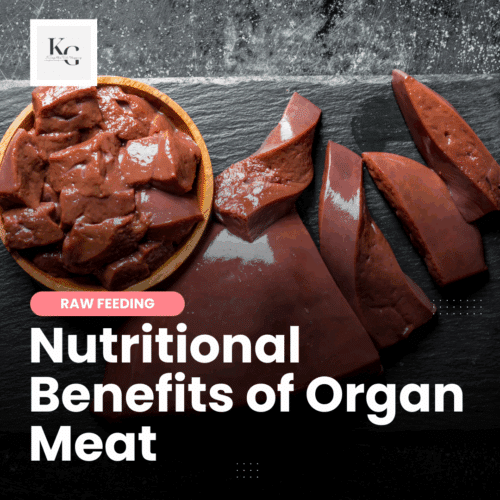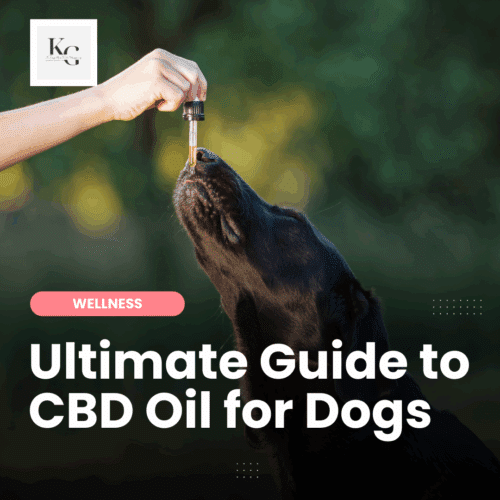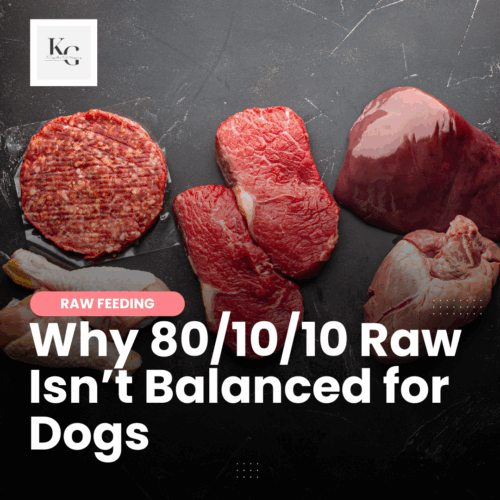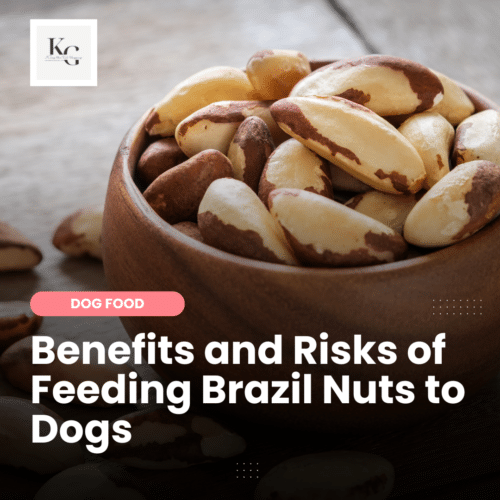Keep the Tail Wagging is supported by pet parents. I occasionally earn a commission (at no additional cost to you) when you click through an affiliate link to one of my favorite products. Thank you for your support. Read More
I love peanuts. Not peanut butter, just peanuts. And I used to share them with my dogs. Peanuts are a healthy snack, so, of course, they're safe for dogs. Or, at least, that's what I thought. After years of snacking on this natural treat, I switched to organic cashews, which I don't share with my dogs. In this article, I'll share why I no longer feed my dogs peanuts, but they get the occasional peanut butter treat.
Nutrients in Peanuts
Peanuts are packed with a variety of nutrients that provide several health benefits, including:
- protein
- healthy fats
- fiber
- vitamins E, niacin, folate, and thiamine
- magnesium
- phosphorus
- manganese
- copper
- antioxidants
While peanuts are often considered a healthy snack due to their protein and nutrient content, a few factors may impact how healthy they are for us and our dogs. Two factors worth considering are aflatoxins and the sweeteners some peanut butter brands commonly use.
Peanuts and Aflatoxins
Peanuts are susceptible to contamination by aflatoxins, naturally occurring toxic compounds produced by certain molds, primarily Aspergillus species. These molds can grow on crops under certain conditions, particularly when high humidity and poor storage conditions exist. Aflatoxins are classified as carcinogens and can have harmful effects on human health, including liver damage and an increased risk of liver cancer, which is why some believe peanuts to be harmful to dogs.
To mitigate the risk of aflatoxin contamination, peanuts undergo sorting, cleaning, and roasting processes. Regulatory authorities set maximum limits for aflatoxin levels in peanuts and peanut products to ensure food safety. However, it's important to note that the risk of aflatoxin exposure can still exist, especially in peanuts from regions with less stringent regulations or in peanuts that are improperly stored.
Sweeteners in Peanut Butter
Some commercially available peanut butters contain added sweeteners to enhance flavor and palatability. Common sweeteners include sugar, high-fructose corn syrup, and hydrogenated oils. But the sweetener dog owners are warned about is xylitol. While these sweeteners may enhance the taste, they can also contribute to health issues if consumed excessively.
Sugar and high-fructose corn syrup are added sugars that can contribute to weight gain, dental problems, and an increased risk of chronic conditions like obesity and type 2 diabetes. Hydrogenated oils, often used to prevent oil separation in peanut butter, contain trans fats, which have been linked to heart disease.
When selecting peanut butter, it is beneficial to choose brands that contain fewer or no added sugars and trans fats. Natural peanut butter, made solely from peanuts without additives, can be a healthier option. However, natural peanut butter still comes with the risk of aflatoxins.
Choosing Peanut Butter for Dogs
I don't feed peanut butter to my dogs that often, but when I do, I choose an organic brand with only peanuts as an ingredient. It's harder than you'd think to find organic peanut butter; because many organic brands still contain additional additives. So, if you're shopping for a product, take the time to read all the ingredients.
3 Healthy Alternatives to Peanut Butter
I used peanut butter to trick my dogs into taking medication. Others used it to stuff a Kong or create a frozen treat. Healthier alternatives to peanut butter are:
- canned pureed pumpkin
- canned pureed sweet potato
- plain yogurt
3 Healthy KONG Recipes
A stuffed KONG toy was one of the first things I was introduced to when we became dog owners. First, they provide mental stimulation as they work to extract the treats or food hidden inside, keeping them engaged and entertained. Secondly, a KONG can help alleviate boredom and anxiety, particularly during times of separation or when you need to occupy their attention. A stuffed KONG can also challenge dogs, encouraging problem-solving skills and enhancing their cognitive abilities. Moreover, it can serve as a useful tool for crate training or redirecting destructive chewing behaviors. Lastly, it can help slow down fast eaters, serving as a food puzzle that extends mealtime and promotes healthier eating habits.
The following are KONG recipes that don't call for peanut butter.
1 – Banana & Yogurt
- Mash 1 ripe banana in a bowl.
- Mix in 1/2 cup of plain yogurt (make sure it doesn't contain any artificial sweeteners like xylitol, as it can be toxic to dogs).
- Optional: Add a sprinkle of cinnamon for added flavor.
- Spoon the mixture into a KONG toy, and freeze it for a few hours until it solidifies.
- Serve it to your dog for a tasty and cooling treat.
2 – Blueberry & Coconut
- Blend 1 cup of frozen blueberries and 1/2 cup of unsweetened coconut milk until smooth in a blender or food processor.
- Pour the mixture into a KONG toy.
- Optional: Add a few blueberries or small coconut flakes as a surprise in the center.
- Freeze the KONG for a few hours until it solidifies.
- Give it to your dog for a refreshing and nutritious treat.
3 – Pumpkin & Carrot
- Mix 1/2 cup of canned pumpkin puree (make sure it's pure pumpkin, not pumpkin pie filling) and 1/2 cup of grated carrots.
- Optional: Add a sprinkle of cinnamon or a teaspoon of honey for added taste.
- Fill the KONG toy with the pumpkin and carrot mixture.
- Freeze the KONG for a few hours until it solidifies.
- Serve it to your dog for a fiber-rich, vitamin-packed treat.

















That’s interesting about the almonds (as I pop a few in my mouth). It sucks that I’m learning so much about human food. Even when we think we’re eating healthy, we may not be. Thanks for the reminder to check the labels.
I love popcorn. The only reason I don’t give it to my dogs is because every now and then I get one of those popcorn thingies in my gums. I doubt that it’ll happen to my dogs since they don’t chew the popcorn, but the aggravation of trying to floss those things out keeps me from sharing. LOL I’ve been waiting for them to come up with a popcorn that doesn’t have that problem, but I would’t buy it because I’d worry that it was created in a lab.
I agree with Pamela. “Once Again” brand organic unsweetened salt free peanut butter is great. Our dog, Dice, gets roughly a teaspoon a few times a week. There are other brands that are organic and offer no added sugar or salt just ground up organic peanuts.
Also, regarding aflatoxins, personally, I’ve eaten the same organic peanut butter and been tested and there has been absolutely no trace of aflatoxins in me. It also matters how one’s body detoxes. So, sometimes, claims are exaggerated. Of course, better safe than sorry if you’re so concerned.
To add to that, almonds, even organic, are either sprayed with rocket full or steamed to the point of losing critical enzymes and other nutrients, to kill pathogens. Unless, you purchase organic almonds from an organic farm stand or a company that imports organic almonds who then specifically states they don’t use these protocols, be aware that you’re feeding your dog and yourself almonds that are possibly more harmful than peanuts with alfatoxins.
I feed peanut butter if I am making a sandwich for me. The kind I buy has a no sugar no salt added kind and I refrigerate it once it is open since there are no preservatives. I have also read that giving dogs popcorn is a choking hazard but we have popcorn night here every Saturday for the people and the dogs eat it just fine.
Very interesting fact about peanut butter! Luckily, I’ve never given Haley massive amounts of peanut butter, but anytime I’ve given her whole peanuts, they come out of the other end undigested, so I don’t give them to her anymore.
I wonder if there’s a link between an increase in dog cancer and the fact that so many people give their dogs peanut butter (in Kongs and etc.)
Good to know. I’ll have to look for it. Our people co-op doesn’t carry food, but our grocery store now has a huge natural food section (with freezers and everything) so I’ll look for some there. Thanks, Pamela 🙂
Our co-op keeps their nut butters in the bulk foods section, unrefrigerated. So I follow their lead. However, the consistency is a little thinner if you store it in your pantry. Keeping it in the fridge will make it thicker for stuffing a small Kong or such.
Our dogs rarely get peanut butter anymore, but I’m going to start buying the natural peanut butter for them. Does it need to be refrigerated?
I guess lots of people eat traditional peanut butter which is loaded with sugar. We get it from our food co-op, sugar free. And it’s also easy to make at home with a blender so you can make sure you’re not adding anything nasty.
Yeah, it’s still high in fat. But that’s not a problem for everyone.
No problem. Check out the blog Kol’s Notes for awesome recipes: kolchakpuggle.com
My dog used to love the Kongs filled with peanut butter. I had no idea they would be considered cancer-causing, though I knew about the high fat. Thank you for sharing this information, and an alternative to the typical PB Kong filler.
I suppose it is [a choking hazard]. Anything could be. I don’t think that a peanut is any riskier than a piece of kibble. About the same size, depending on the kibble. If a dog could choke on a peanut, they could choke on a peace of kibble too.
I’d say even more so on the kibble because they never seem to chew that. Cookie does chew her peanuts quite thoroughly.
People choke on the weirdest things and I’m sure some choked on peanuts too.
Live is dangerous. Getting up from bed is dangerous. Being in bed is dangerous; just recently I learned that about 600 people die from falling out of bed in the US a year (or something like that).
So … I don’t like the idea but I accept that a dog could choke on something whether they get peanuts or not.
I’m a terrible person. I use the red one. Can’t remember the brand name. It’s only given now and then as a treat – very rarely. Rodrigo and I have a love of peanuts and whenever he hears the sound of me breaking a shell, he runs and jumps on the sofa next to me.
I’ve never given Luna an actual peanut, just a bit of peanut butter. It is definitely a special occasion treat in our house because it is fairly fatty, but I don’t avoid it altogether. We use a natural peanut butter as well.